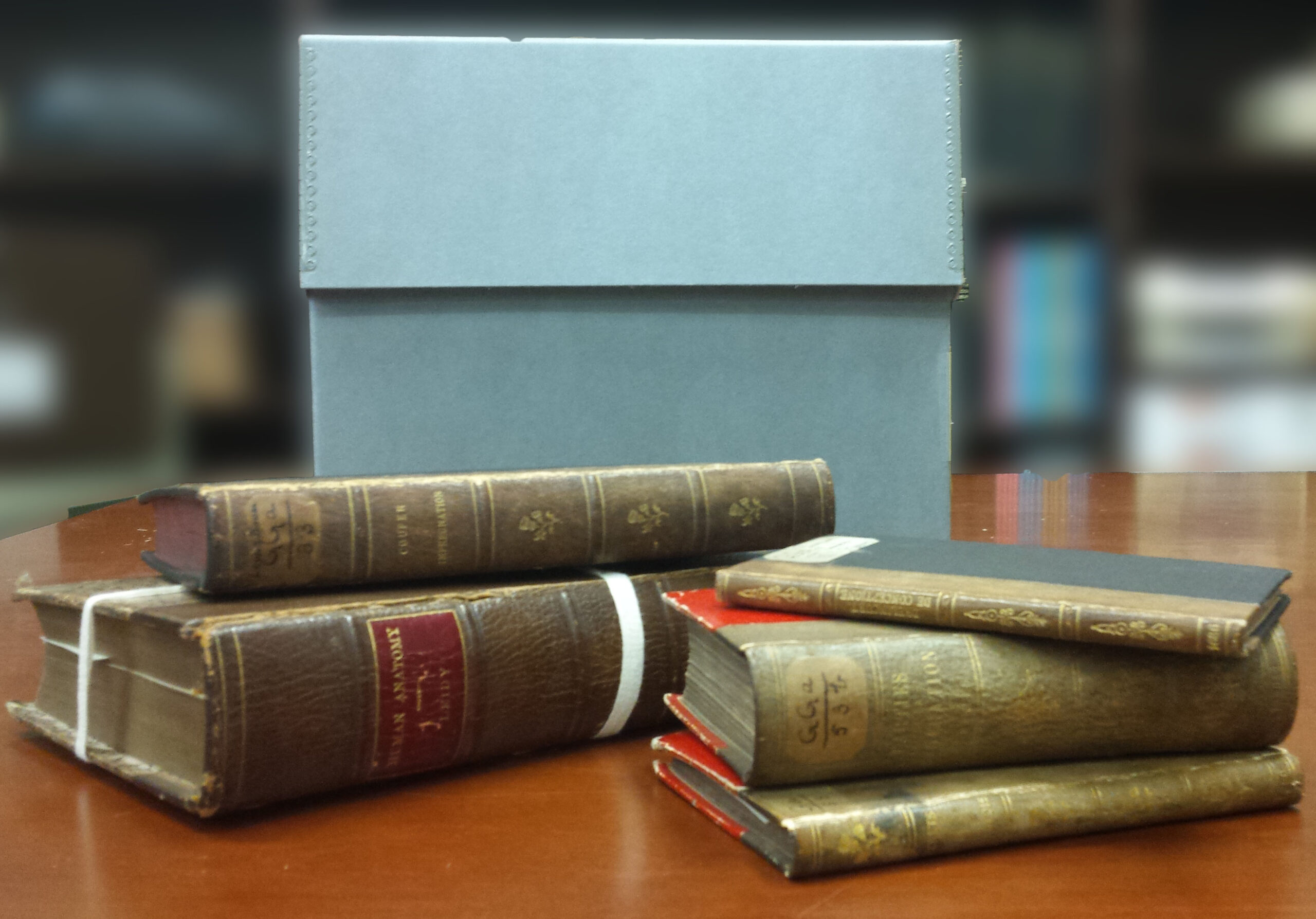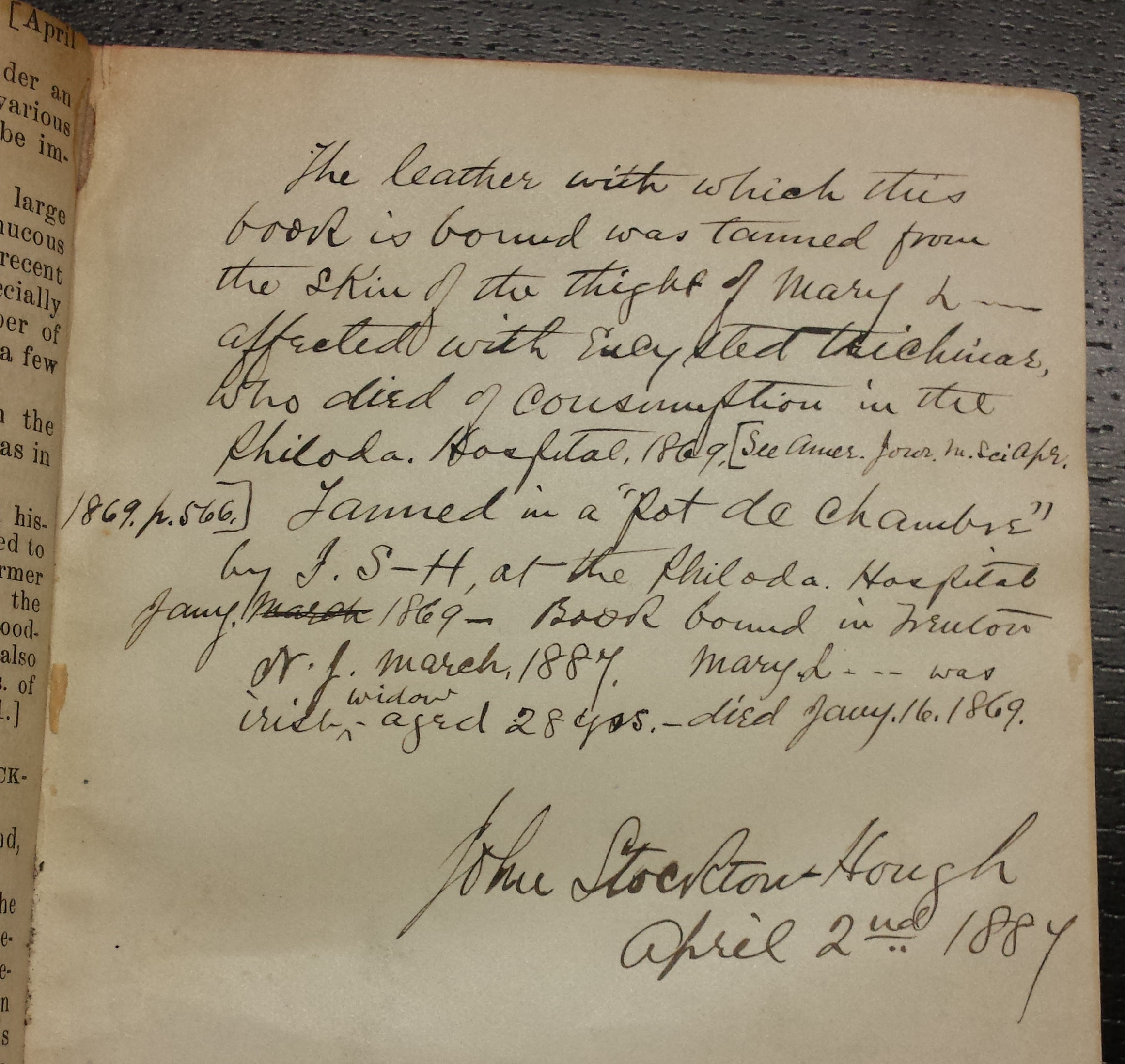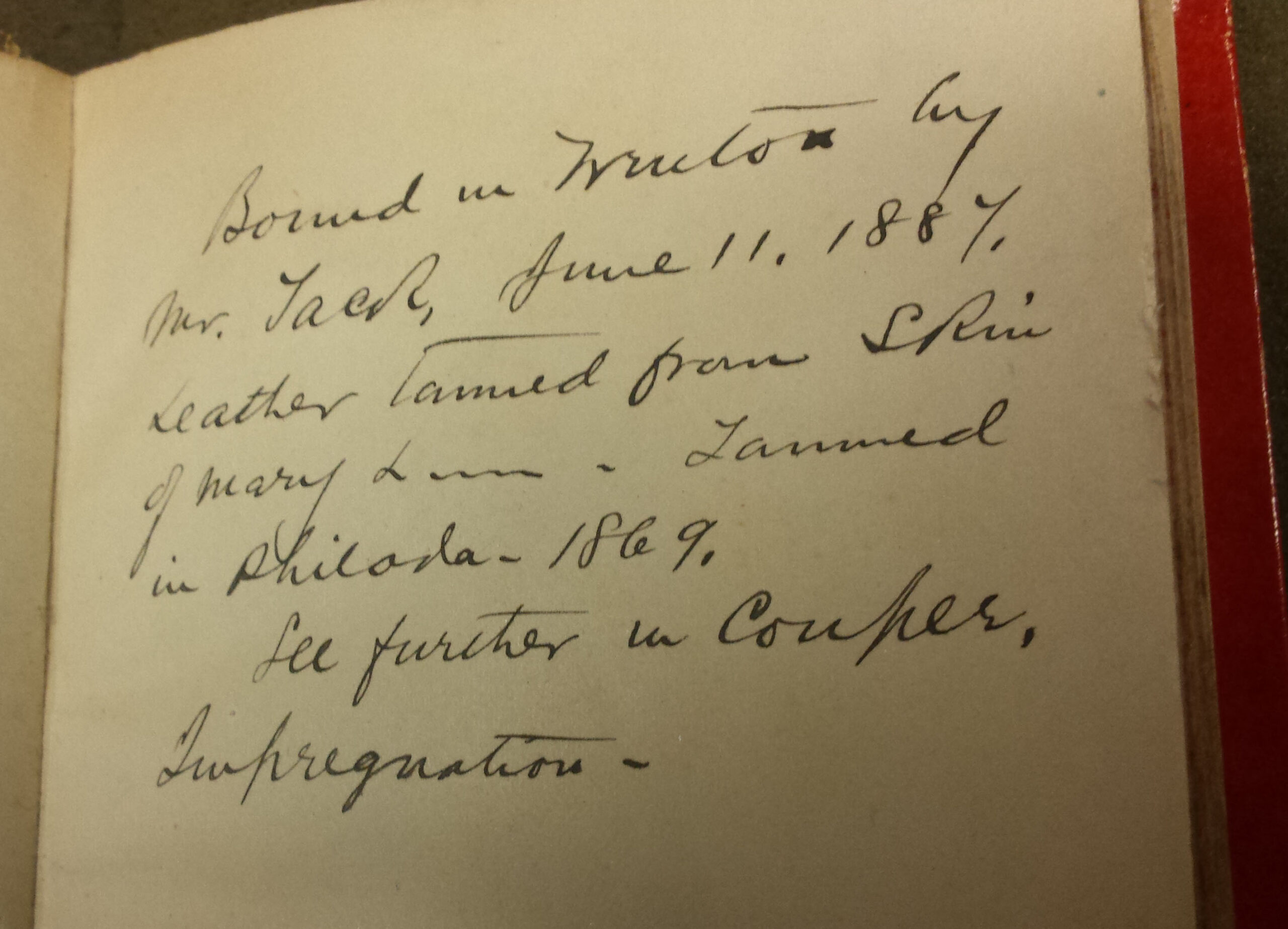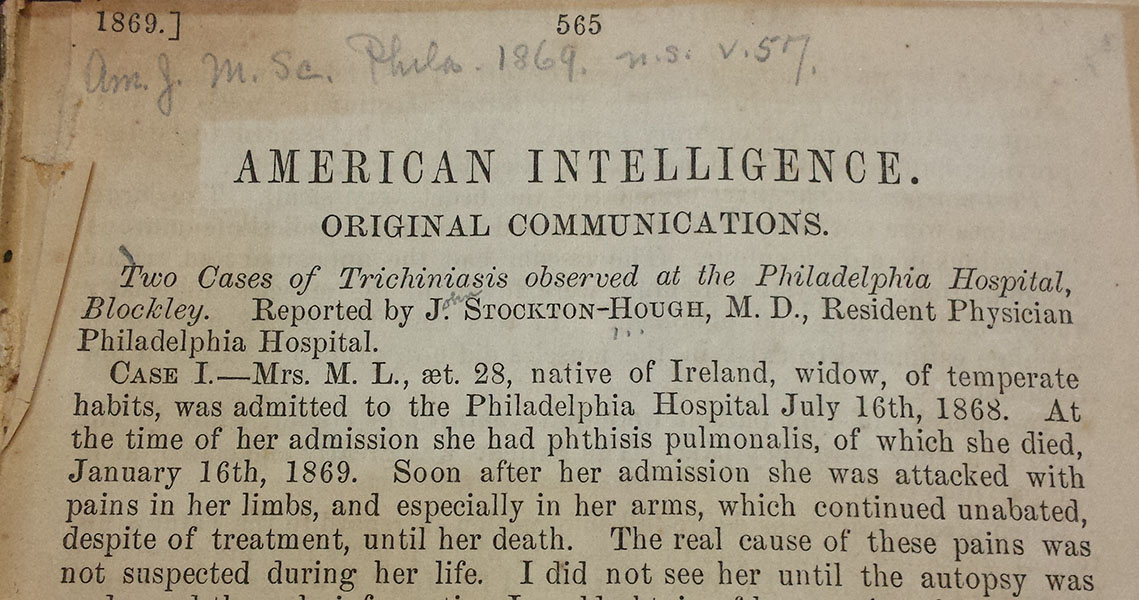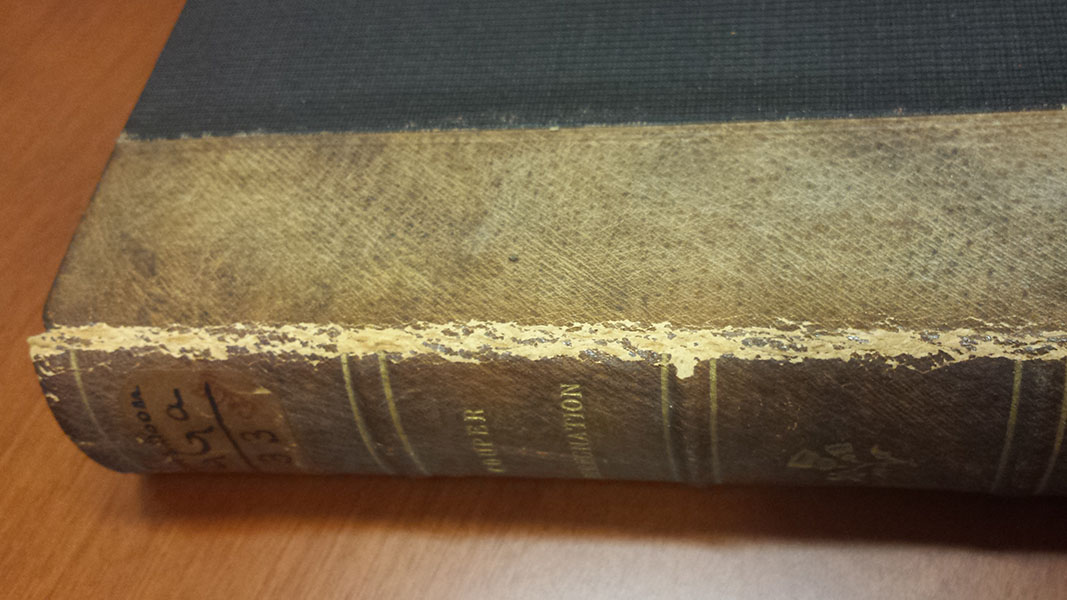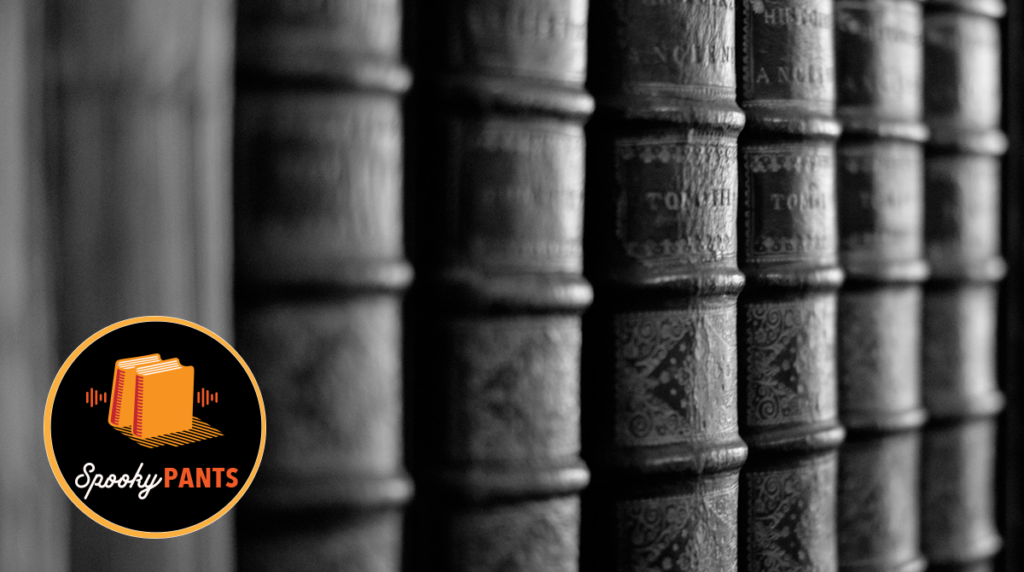
About 50 books are known to exist in the world that are allegedly bound in human skin—and it’s possible that there are many more. Believe it or not, these dark books were not made by Nazis, serial killers, or occultists, nor were they churned out in a nightmare factory during the French Revolution. No, they were made mostly by doctors in the 19th century. How and why such books came to be is the subject of Dark Archives, by rare-books specialist and UCLA medical librarian Megan Rosenbloom. She’s one of the founders of the Anthropodermic Book Project, whose team has used a simple protein test called peptide mass fingerprinting to confirm that, as of October 2020, 18 books were bound in human skin. What sort of person would do this? How did they get away with it, and what does this ghoulish practice tell us about the clinical gaze? Megan Rosenbloom joins us on the podcast this week to discuss the history of anthropodermic bibliopegy, the evolution of medical ethics and consent, and the controversial question of what we do now with the very human remains of this grim legacy.
Go beyond the episode:
- Megan Rosenbloom’s Dark Archives: A Librarian’s Investigation Into the Science and History of Books Bound in Human Skin
- Currently, the Anthropodermic Book Project has tested 31 books,
- The first anthropodermic book to be confirmed using peptide mass fingerprinting was at Harvard’s Houghton Library; the same year, 2014, its other book suspected of having human skin binding turned out to be made of sheep leather
- Explore the anthropodermic book collection at the Mütter Museum, which has the largest known collection (of five books)
- Follow librarian Beth Lander’s quest to learn more about Mary Lynch, the woman whose skin binds three of those books
- Si vous pouvez lire le français … here is the story of a French edition of The Gold Bug by Edgar Allan Poe, the 18th book confirmed by the Anthropodermic Book Project
Images below courtesy of the Mütter Museum of The College of Physicians of Philadelphia:
Tune in every week to catch interviews with the liveliest voices from literature, the arts, sciences, history, and public affairs; reports on cutting-edge works in progress; long-form narratives; and compelling excerpts from new books. Hosted by Stephanie Bastek.
Subscribe: iTunes • Feedburner • Stitcher • Google Play • Acast
Download the audio here (right click to “save link as …”)
Have suggestions for projects you’d like us to catch up on, or writers you want to hear from? Send us a note: podcast [at] theamericanscholar [dot] org. And rate us on iTunes!
Music featured from Master Toad (“Dreadful Mansion”), Dead End Canada (“Witch Hunt”), and 8bit Betty (“Spooky Loop”), courtesy of the Free Music Archive. Our theme music was composed by Nathan Prillaman.

